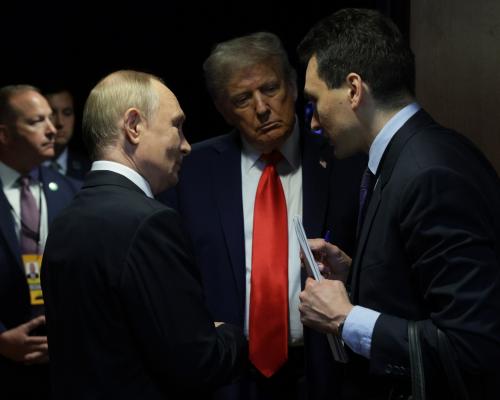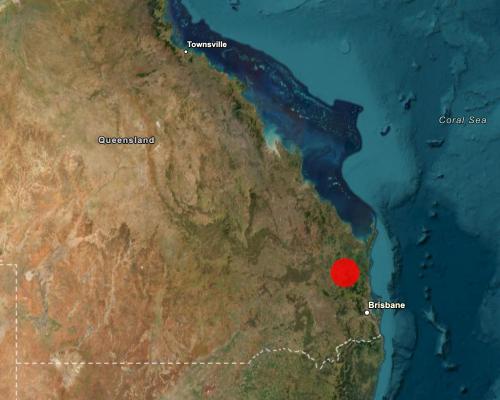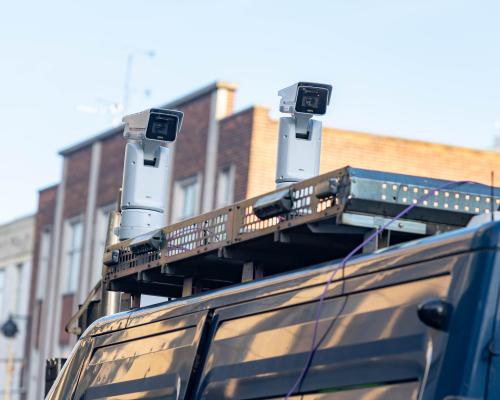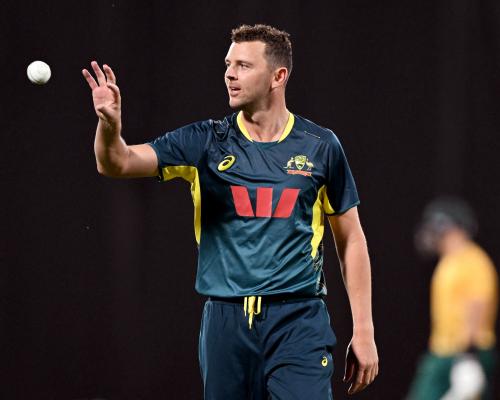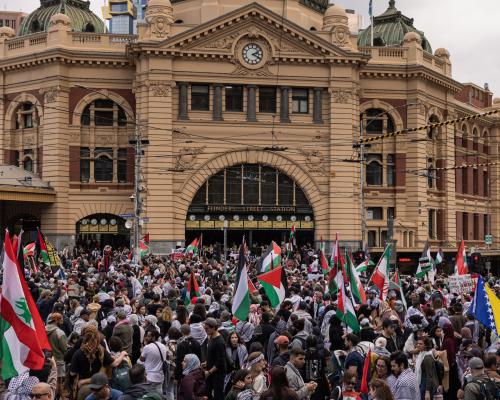
Proposed anti-protest laws in Victoria – including an outright ban on face masks at protests – will be significantly scaled back after pushback by human rights groups and unions.
Several sources involved in the consultation process, some of whom have requested anonymity as the bill’s wording is not finalised, have said that roundtable discussions in April prompted concessions from the Allan government.
This included dropping plans for a full ban on “face coverings” at protests, which was planned to carry a fine of up to $2,000. Instead, it is understood the government will propose penalties only when a person wearing a face covering is refusing to cooperate with police or believed to be committing a criminal act.
A senior Victorian government source said such a measure, combined with anti-vilification laws set to take effect in September, would allow authorities to “unmask” neo-Nazis, who marched through Melbourne’s CBD in face coverings at the weekend.
Sign up: AU Breaking News email
Anastasia Radievska, protest rights campaigner at the Australian Democracy Network said the shift was the result of “broad opposition” to the plan, including by human rights, legal, faith, First Nations and disability rights groups.
“The prohibition on masks has serious impacts on community health, the participation of people with disabilities, the participation of victim-survivors of domestic and sexual violence in protest. It’s not an appropriate way to address the problems of racist violence, which is what the laws were advertised as tackling,” Radievska said.
“These groups have worked to ensure that any restrictions that are introduced – although we’ve argued that Victoria doesn’t need new protest restrictions – are appropriately targeted and don’t impact on the participation of these vulnerable groups in protests – and actually target radicalised violence and hate.”
An outright ban on attachment devices such as chains, glue or locks, which are commonly used in climate protests, is also expected to be narrowed and will apply only when there is a community safety risk.
This would mean non-violent acts such as those committed by Zelda D’Aprano – who is immortalised in bronze outside Trades Hall after she chained herself to a government building to protest against the lack of equal pay for women – would not be affected.
The proposal for “safe access” areas around places of worship, which was also floated by the government in December, has been described by several stakeholders as “dead in the water”. But this was disputed by the government source who said it was still being considered, though was proving “incredibly complex”.
However, a ban on the display of terrorist symbols at protests is likely to proceed, despite reservations about how “terrorist organisation” could be defined.
Stakeholders were initially told the changes would be introduced when parliament resumed after the midwinter break but the timeline has now shifted to the end of the year.
The premier, Jacinta Allan, told reporters on Tuesday the laws would not be aimed at protests but at extremist behaviour.
“People who are taking the opportunity to engage in extreme and dangerous behaviour under the guise of participating in a protest – that’s what the new laws will be cracking down on., she said.
It comes after Victoria’s new police chief, Mike Bush, ruled out a permit system for protests in a series of interviews last month, noting they had not been effective in other states.
Labor’s rank-and-file has also pushed back, with state conference carrying a motion earlier this month calling on the government to abandon its proposed changes.
“Inconvenience is not a form of violence,” it said, noting several wins of the labour movement were only possible as a result.


